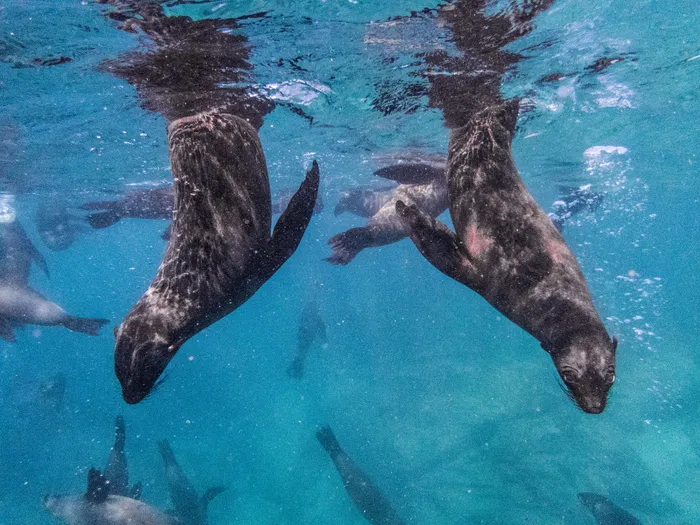Public told to steer clear of Cape fur seals

Cape Fur Seals
Image: Scott Ramsay/CapeNature
In light of recent reports of aggressive behaviour linked to confirmed rabies cases among Cape fur seals, CapeNature has urged the public to avoid approaching or interacting with these animals.
In addition to rabies, seals can carry other diseases transmissible to humans, and their sharp teeth pose a risk of serious physical injury.
“As we approach the busy summer season, I remind everyone that Cape fur seals are wild animals. Even well-intentioned interactions can have serious consequences for both people and the animals. We urge the public to act responsibly, avoid contact, and immediately report any abnormal or aggressive seal behaviour to the authorities,” said Dr Ashley Naidoo, CEO of CapeNature.
The conservation body explained that even in instances where a seal pup is found on a beach, people should avoid interacting with the animal and contact the authorities instead.
“While it is common for seals to haul out on beaches to rest, it is important to recognise any signs of distress or abnormal behaviour when encountering a seal. Seals may display defensive behaviour if they feel threatened or are injured. They may display aggressive or disoriented behaviour if infected by rabies. Rabies can be transmitted through bites, scratches or direct contact with saliva and is fatal for both humans and unvaccinated animals,” CapeNature said.
Activities that disturb seals are illegal without a permit, according to the NEMBA (National Environmental Management: Biodiversity Act) TOPS (Threatened or Protected Species) regulations. These activities include petting, as it disturbs the animal’s natural behaviour and exposes humans to potential dangers such as bites, scratches, infections and disease, CapeNature added.
In case of a seal bite/ scratch/ lick:
- If a seal bites or scratches someone in the water, the beach will be closed immediately, indicated by the activation of a shark siren and the raising of a shark flag, if available. Shark spotters or lifeguards will notify CapeNature and the State veterinarian, who will provide guidance on the necessary action. Municipal Disaster Management and appropriate Marine Stranding Networks will also be informed.
- Lifeguards or first responders will monitor and track the seal’s movements. The beach will only reopen after the seal has been safely removed or has vacated the area.
- Anyone bitten, scratched or licked by a suspect rabid seal should seek urgent medical care at the nearest hospital. At the scene, the wound must be thoroughly washed with soap and water for 10-15 minutes. The person must then be taken to the nearest hospital to receive post-exposure prophylactic treatment against rabies.
- The patient needs to inform the hospital personnel that the bite/ scratch/ lick is from a seal that may be rabid.
- A video of the seal’s behaviour should be captured if possible and sent to CapeNature at 083 236 2924, including a location pin. This will be placed on the appropriate stranding network for advice and planned reaction.
- CapeNature further advised, if a pet had been bitten or scratched by a seal, owners should consult the local state veterinarian. Provide details of the incident, including wound type, treatment received, and vaccination history. Follow the same wound-cleaning protocol for pets as for humans.
Cape Times